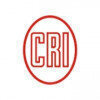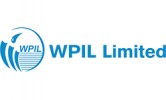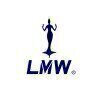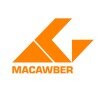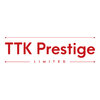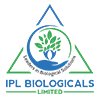56 Shakti Pumps Jobs

Sr. Executive/Quality
Shakti Pumps
posted 3mon ago
Job Description
Quality Assurance: Develop, implement, and maintain quality management systems and procedures to ensure compliance with applicable quality standards and regulations. Monitor adherence to quality processes across departments and functions.
Quality Control: Establish and maintain quality control procedures to monitor and evaluate the quality of products, services, and processes. Conduct inspections, tests, and audits to identify and address any non-conformities or deviations.
Process Improvement: Identify opportunities for process improvement and lead initiatives to enhance operational efficiency and quality. Analyze data, metrics, and customer feedback to identify trends and implement corrective and preventive actions.
Documentation and Reporting: Maintain accurate and up-to-date quality documentation, including standard operating procedures (SOPs), work instructions, and quality records. Prepare quality reports and metrics to communicate performance and improvement initiatives to stakeholders.
Training and Education: Provide training and guidance to employees on quality management principles, procedures, and tools. Conduct workshops and educational sessions to promote a culture of quality and continuous improvement.
Supplier Quality Management: Collaborate with procurement and supply chain teams to establish and monitor supplier quality performance. Conduct supplier evaluations, audits, and quality assessments to ensure compliance with quality standards.
Customer Satisfaction: Monitor and analyze customer feedback and complaints to identify areas for improvement and implement corrective actions. Collaborate with customer-facing teams to address customer concerns and enhance customer satisfaction.
Regulatory Compliance: Stay updated with relevant quality regulations, standards, and industry best practices. Ensure compliance with applicable regulations, such as ISO standards, FDA regulations, or industry-specific quality requirements.
Continuous Improvement Initiatives: Lead or participate in quality improvement projects and initiatives, such as Lean Six Sigma or Kaizen, to drive process optimization, waste reduction, and quality enhancement.
Cross-Functional Collaboration: Collaborate with cross-functional teams, including production, engineering, supply chain, and customer service, to address quality-related issues, implement process changes, and drive a culture of quality throughout the organization.
Requirements:
Bachelor's degree or higher in a relevant field, such as quality management, engineering, or business administration. Relevant certifications, such as Certified Quality Manager (CQM), Certified Quality Engineer (CQE), or Six Sigma certifications, are advantageous.
Previous experience in quality management, quality assurance, or related roles, preferably in a regulated industry or manufacturing environment.
Strong knowledge of quality management principles, methodologies, and tools (e.g., Lean Six Sigma, Statistical Process Control).
Familiarity with quality standards, such as ISO 9001, FDA regulations, or industry-specific quality frameworks.
Experience in implementing and maintaining quality management systems.
Excellent analytical and problem-solving skills, with the ability to analyze data, identify trends, and drive improvement initiatives.
Detail-oriented mindset and strong attention to accuracy and compliance.
Proficient in using quality management software, tools, and statistical analysis techniques.
Excellent communication and interpersonal skills to effectively collaborate with stakeholders at all levels.
Strong project management and organizational skills, with the ability to prioritize tasks and meet deadlines.
Continuous learning mindset and commitment to professional development in the field of quality management.
Employment Type: Full Time, Permanent
Read full job descriptionPrepare for Senior Executive roles with real interview advice
What people at Shakti Pumps are saying
Rating based on 8 Senior Executive
reviews
Likes
Nothing to like as well
- Job security - Good
Dislikes
Nothing to dislike as well
- Salary - Poor
+5 more
Senior Executive salary at Shakti Pumps
reported by
45
employees
with 1-10
years exp.

₹3.1
L/yr - ₹8
L/yr
19%
less
than the average Senior Executive Salary in India
View more details
What Shakti Pumps employees are saying about work life
based on 277 employees
Strict timing
Monday to Saturday
No travel
Day Shift
Similar Jobs for you
Recently Viewed
Share an Interview
How was your last interview experience?



 Anonymous · Sales & Business Development
in Pithampur
Anonymous · Sales & Business Development
in Pithampur










